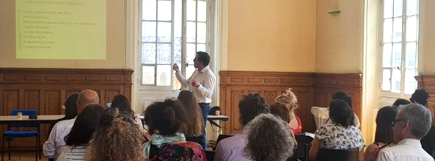Getting women in corporate boards - some international reflections

16 novembre 201814h30 - 16h30
Morten Huse has for several decades been studying efforts to increase the presence of women on boards of directors. He followed the Norwegian discussion during the 1990’s, the implementation of the Norwegian gender balance regulations the decade after, and then how the Norwegian initiative have been discussed and spread in many countries. During the LIRSA laboratory seminar he will present some lessons and reflections around his observations. He has through participant observation research observed the national and international discussions for getting more women on boards.
He will present the background for mandatory vs voluntary actions for increasing the presence of women on boards in Norway, the business utility case vs justice or societal cases, and how coercive pressure may have consequences for the women becoming board members across national cultures. In the presentation he will also discuss the “golden skirts” phenomenon, the change from Berlusconi via Bocconi to Business women in Italy, the lack of champions in Spain, etc. He will show that many of the arguments for getting more women on boards are based on weak or contradicting assumptions, and argue that sustainable societal consequences will depend on sustainable argumentations.
Many of his arguments are presented in “Gender in the Boardroom : Learnings from world-leader Norway”
The key findings of this Bulletin are:
• Voluntary actions to get more women on boards did not work in Norway. A legal quota for gender balance was therefore implemented. Many countries have been influenced by the snowball that started rolling in Norway.
• Challenges, characteristics, and contributions of the women becoming board members vary. They are influenced both by the national context and the national public policy instruments being applied. Efforts for getting women on boards must be adapted to national discourses and contextual factors.
• Actual board behaviour influences the business case for women on boards. It is necessary to move beyond superficial accounts and take better account of ‘who the women are’.
• Quotas are not enough for achieving gender equity, and societal sustainability and well-being. Quotas must be supplemented by other initiatives.



